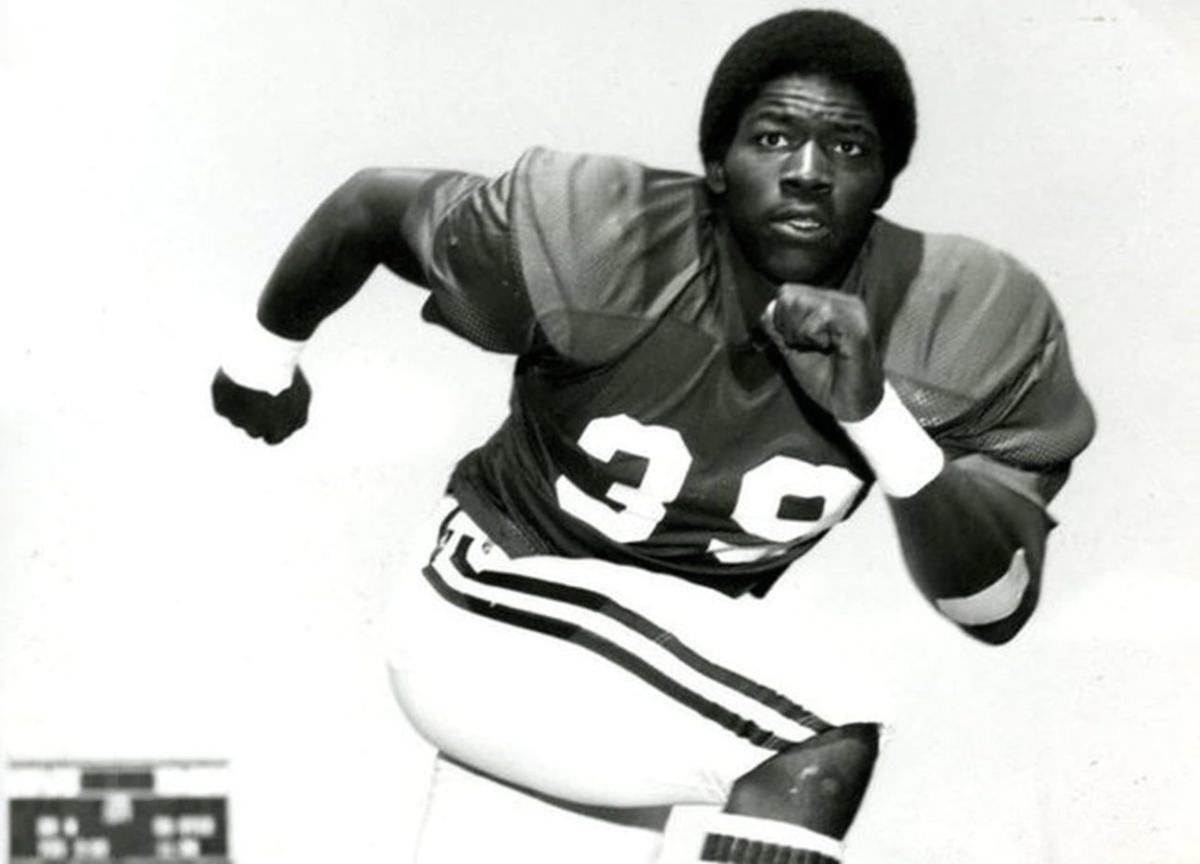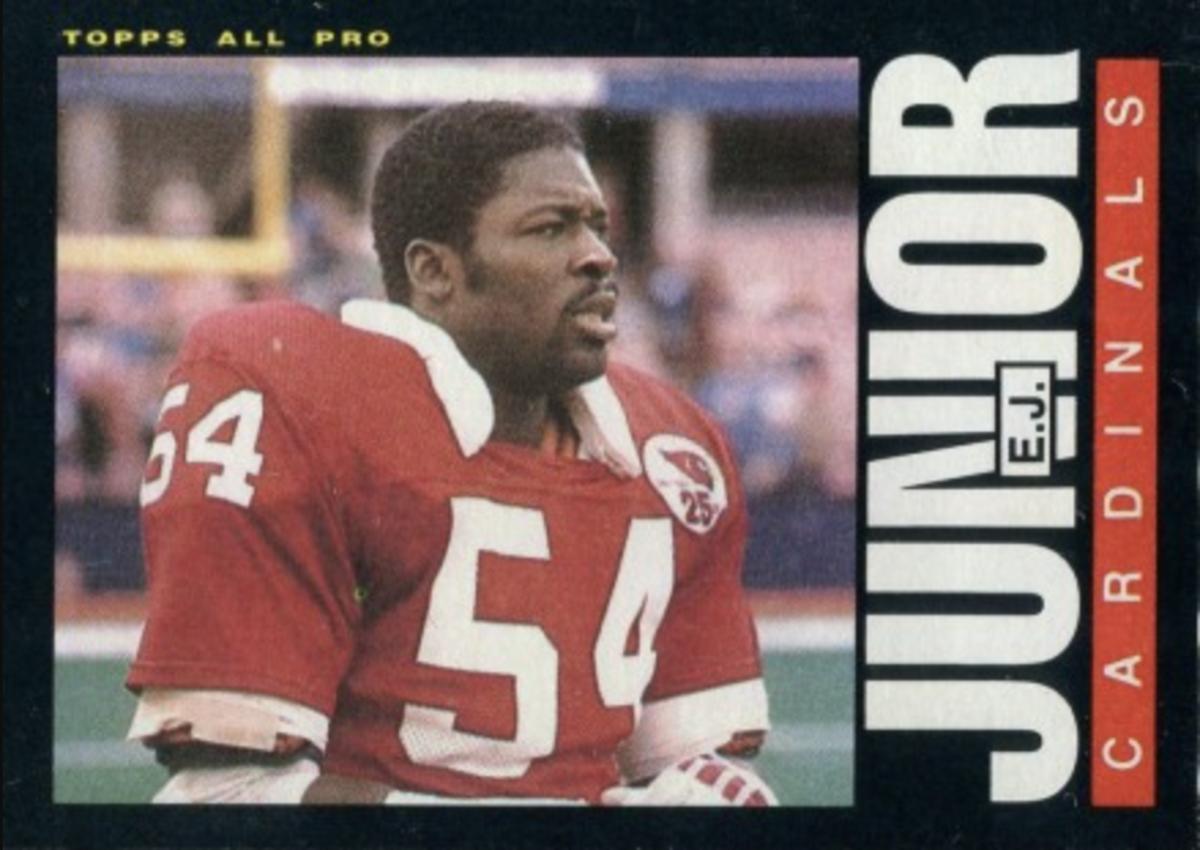Faith, Family and Purpose: The Storied Career of E.J. Junior

In the times that we live in, when people think of ordained ministers they typically think of a pastors or priests. Perhaps missionaries or public servants.
It is safe to assume that most don’t think about football players.
Former Alabama defensive end Ester James Junior III — known as E.J. to those that remember his playing days — is indeed an ordained minister and uses those skills to serve young men through football.
“My ministry has never been in four walls,” Junior said. “I really believe that part of my ministry is football and trying to develop young men to be the cornerstones of their households that God has purposed them to be.”
Football has been part of the majority of Junior’s life. Born on Dec. 8, 1959 in Salisbury, North Carolina, Junior and his family soon moved to Nashville, where he proceeded to spend his childhood years. When he reached high school age, he attended Maplewood High School where he played linebacker for the school’s football team.
While at Maplewood, Junior racked up accomplishments both on and off the football field. On the gridiron, Junior was named a two-time All-American and received numerous All-City, All-County and All-State honors. Off the field, Junior graduated fifth in his class, served as the student-body president, became an Eagle Scout, was awarded the Hume Award and was also the president of both his high school’s ministry and choir.
Needless to say, Junior was a highly sought-after recruit when it came time to choosing a college. Letters poured in from all over the country with offers, but Junior developed a system to narrow down where he wanted to go.
“There are three areas that you need to look at,” Junior said. “I do this even when I recruit kids now. There are three areas that you need to look at: the academics, the athletics and the social life. I had a lot of scholarship offers back when I was a senior in high school because I was one of the top linebackers in the country as well as a student-athlete, so I had to figure out how I was supposed to narrow all of these schools down to one.”
When Junior had narrowed down his list of schools, the list was as follows: Tennessee, Vanderbilt, Georgia Tech and Morehouse. Of those four schools, Junior was set to decide.

Growing up in Tennessee Volunteer country, Junior saw Tennessee as a viable option. However, after head coach Bill Battle was forced out following the 1976 season and replaced with Johnny Majors, Junior decided he wanted to look at his remaining options.
“I was kind of enamored with coach Battle and what they were doing with their program,” Junior said. “When they hired Johnny Majors, to me that was a coaching transition which means new coaching staff, new mentality. I had no clue what they had done because that was a new coaching staff doing some new things. Newness threw those things off.”
But what about Alabama?
“I really wasn’t interested in Alabama to be truthful,” Junior laughed.
On June 11 of 1963, state of Alabama governor George Wallace took his infamous ‘Stand in the Schoolhouse Door,’ blocking Vivian Malone and James Hood — two African-American students — from entering Foster Auditorium in an attempt to block the desegregation and racial integration of schools. The incident occurred when Junior was just three years old and created what he thought would be a lasting impression of the school.
“When George Wallace was on the steps of the president’s house he said that ‘blacks will never walk on this campus, ‘” Junior said. “That sent a racial message to me that I wasn’t wanted.”
It was a message that Junior carried with him throughout his days as a child through high school. Alabama was not where he wanted to go to college.
Enter a man named Paul William ‘Bear’ Bryant.
When Crimson Tide head coach Bryant began to recruit Junior, he knew just where to start.
“Coach Bryant called my mother,” Junior recalled. “This man called directly saying ‘I want to speak to E.J. Junior.’ She said ‘who’s calling’ and he said ‘Paul Bear Bryant.’ My mother looked at me and said ‘coach Bryant’s on the phone’ and I said ‘Bear Bryant?’ She said yes and I said ‘I don’t want to talk to him.’ And my mother looked over her glasses and talked through her teeth and said ‘you’re going to talk to this man.’”
When Junior took the phone from his mother, Bryant’s next words would stay with him forever. Throughout his recruiting process and many schools, Junior had heard the same message over and over again: ‘If you come here, you’ll be an All-American,’ ‘if you play for me, you’ll be a national champion.’
The promises and positive jargon had worn away at Junior, and he had grown tired of it. Who was this man on the other end? What could he possibly say to me that dozens of other coaches haven’t already?
As junior held the phone to his ear, the gravelly voice of the legendary coach began to speak.
“‘I know you’ve heard some good things about Alabama and I know you’ve heard some negative things about Alabama, but I’m going to promise you two things,’” Bryant said, according to Junior. “‘I guarantee you’re going to get a quality education, and if you come to Alabama, I’m going to work your tail off. I’m not going to promise you’re going to start if you come to Alabama. I’m not going to promise you’ll play at Alabama.’”
Junior’s response?
“Keep talking, coach,” Junior said.
Keep talking coach Bryant did, and Junior found himself on the campus of the University of Alabama in the fall of 1977.

Shifting from linebacker to defensive end, Junior was a natural fit with the Crimson Tide. The four-year varsity letterman was named All-SEC in 1978, 1979 and 1980, as well as consensus All-American in both 1979 and 1980. Along with two national championships in 1979 and 1980, Junior was also named SEC Defensive Player of the Year in 1980 as well as a Lombardi Award finalist.
“The transition was easy because coach Bryant was like a father,” Junior said. “He was like a dad. He would take time to talk to us when things were good and he would bust you up when you did things wrong. He was a coach. He was a mentor. He was a philosopher. We could go to talk to coach Bryant about anything and if you did something wrong, he knew about it.”

After graduating from Alabama with a bachelor’s degree in public relations and communications and a minor in engineering, Junior took his football talents to the next level. In 1981, Junior was the fifth-overall pick by the St. Louis Cardinals, where he played until 1988. In both the 1984 and 1985 seasons, Junior was a Pro-Bowl selection. He then left the Cardinals and subsequently played for the Miami Dolphins, the Tampa Bay Buccaneers and the Seattle Seahawks before retiring in 1993.
After serving various positions in both offices and on the field for NFL teams, Junior served as the linebackers coach for Southwest Baptist University from 2006-2009. He then left to take the head coaching job at Central State University in Wilberforce, Ohio. In 2017, he became the linebackers coach at Delaware State, but has since left to coach high school football, where he remains today.

Junior currently coaches at Middletown High School in Ohio where his grandson plays on defense.
“Right now I’m kind of between college coaching jobs,” Junior said. “I working with my son’s high school at Middletown High School where I was a defensive consultant for the last two years. This year the coach basically gave me the range to be the defensive coordinator so I’ve been going over what we did right and what we did wrong over the past two years to try to improve our program that’s been successful but now they’re kind of in a lull of mediocrity.”
While Junior uses it as an opportunity to pass down his knowledge of the game, he also uses it to develop the minds of his players through his personal ministry.
“As a coach, I preach four things,” Junior said. “Faith, family, football and finishing. Those four things are the cornerstones that make any program strong.”
Junior resides in Middleton with his wife of 27 years, Yolanda Junior. All together they have seven children, with six boys and one daughter.
After being named to the Tennessee Sports Hall of Fame in 2010 and the Alabama Sports Hall of Fame in 2012, Junior will be inducted into the College Football Hall of Fame this December.
“It’s humbling,” Junior said. “I look at myself as a guy who was able to be something based on God’s ability that He put in me, but it’s still about those guys that were around me who made me better. I cannot say that enough. I didn’t get there by myself. I got there by the grace of God because of great parents, but there are a lot of players who I played with and who I played against that raised my level of playing.”
The legendary Tide player E.J. Junior has been selected as a member of the 2020 College Football Hall of Fame Class!
— Alabama Football (@AlabamaFTBL) March 11, 2020
🗒️ » https://t.co/9mikmkbpjL#BuiltByBama #RollTide pic.twitter.com/hvdnfqekbv
After all of his initial hesitation about coming to Alabama, Junior feels that he was meant to attend the school and wear the crimson and white.
“I felt comfortable at other schools, but I felt that there was a purpose for me at Alabama,” Junior said. “We were a family.”
